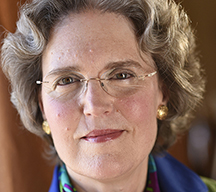
Jennifer Dwight, author of The Tolling of Mercedes Bell (She Writes Press, available now), shares how she turned her “day” job into fiction.
It’s no shock that most writers have “day” jobs. The average writer in the U.S. earns less than $10,000 annually from writing, according to The Authors Guild. We daydream about the elusive future in which we’ll write that break-out novel, all the while surrounded by rich material. So mine the field you’re in.

Writers are natural observers, and at any job there is plenty going on. A labor lawyer I once worked for explained that she’d chosen employment law as her specialty because all social change plays out in the workplace, rather promptly. She found it rewarding to help people resolve the conflicts that changing times invariably presented.
I became engrossed in the stories of her cases. There was the born-male employee who underwent a complete sex change, and who subsequently endured extreme sexual harassment by the very men with whom she had formerly unloaded trucks. At trial we met her partner, who was also female. We also represented an internet marketing company whose employees emailed each other photos taken at the company Christmas party, showing their married boss making whoopee with one of the underlings on a couch in a nearby office. Of course, these salacious shots ended up on Facebook just as the case was settling. Workplaces are multi-level plot factories for the imaginative writer.
Everywhere I’ve worked there have been people with amazing hidden talents, people from dysfunctional families, weekend adventurers, at least one sociopath or narcissist, shrinking violets, blabbermouths, dreamers, liars, physical fitness freaks, addicts, great team players, seekers, loners, geeks, both good and terrible bosses. The same can be said of the clients, whether they are the student body, patients in a doctor’s office, or the general public. The stories behind why and how they came to be your clients are full of juicy material for fiction.
Once you start viewing your day job as a source of writing material, it will seem less like a pirate ship robbing you of precious writing time and energy, and more like a cornucopia.
Transforming fact into fiction is tremendously liberating. You can make a dicey situation turn out the way you wish it had and imbue it with a message that will help others avoid the mistakes you made.
Writing fiction is enlightening. If you want to understand something, or figure out what you really think about it, write about it. Fictionalize something that has happened to you, but stick with the basic set of facts. Getting into your characters’ heads will force you to see the situation from their viewpoints. Delving into your characters’ personal histories will shed light on the motivations behind their behavior and choices, and will open the door to understanding and compassion.

Writing fiction is empowering. You can make unprepossessing people magnetic, give your boss the noble nature he so sorely lacks, transform your friends into glamorous geniuses, or turn a sourpuss into a wise man of few words, exposing the absurdities and humor we so often miss in our myopia. You can create characters who are composites of several people, set the tale in a different place and time in history, bring the dead to life, or create a reality you wish existed from the one you in which you dwell.
So the next time you think, “I don’t believe I just saw that” at the office, or “No one would believe this if I told them,”—believe it and start writing.
 Jennifer Dwight was born into a U.S. military family in the 1950s. Following her father’s career as a pilot in the U.S.A.F., the family lived throughout the U.S. and abroad. In Asia Ms. Dwight’s exposure to ancient culture and eastern religions sparked her life-long interest in how peoples’ beliefs shape their lives. She studied religion, philosophy and English literature and was graduated from The Colorado College with a B.A. in Religion. She moved to the San Francisco Bay Area where she worked as a litigation paralegal, trainer and writer for 33 years while rearing her children as a single mother. During that time she studied creative writing, wrote and published numerous articles, short stories and paralegal books, as well as a 60-segment story, The Dissemblance of Marie Mirabeau, which was the first fiction ever published by The San Francisco Daily Journal. The Tolling of Mercedes Bell, to be released on May 3, 2016, is her first novel.
Jennifer Dwight was born into a U.S. military family in the 1950s. Following her father’s career as a pilot in the U.S.A.F., the family lived throughout the U.S. and abroad. In Asia Ms. Dwight’s exposure to ancient culture and eastern religions sparked her life-long interest in how peoples’ beliefs shape their lives. She studied religion, philosophy and English literature and was graduated from The Colorado College with a B.A. in Religion. She moved to the San Francisco Bay Area where she worked as a litigation paralegal, trainer and writer for 33 years while rearing her children as a single mother. During that time she studied creative writing, wrote and published numerous articles, short stories and paralegal books, as well as a 60-segment story, The Dissemblance of Marie Mirabeau, which was the first fiction ever published by The San Francisco Daily Journal. The Tolling of Mercedes Bell, to be released on May 3, 2016, is her first novel.

About The Tolling of Mercedes Bell
Recently widowed and adapting to the challenges of single motherhood, Mercedes Bell is a paralegal at Crenshaw, Slayne & McDonough when she meets Jack Soutane, a dashing San Francisco lawyer who has recently begun leasing office space from the firm. It’s the 1980s. The crack epidemic, homelessness, and AIDS explode on the scene, Jack’s law practice booms—and the Crenshaw firm eagerly shares his bounty. Meanwhile, despite all the warning signs, Mercedes falls under Jack’s spell. When calamity strikes and Jack succumbs to his own dark surprise, Mercedes finds herself in a race to survive and to protect her daughter. In order to do so, she must make sense of wildly inconsistent information—and face the truths that emerge. Compelling and full of suspense, The Tolling of Mercedes Bell is a story about honesty in the face of deception, courage in the pursuit of happiness, and the unexpected places that quest can lead.


Have just started reading The Tolling of Mercedes Bell and it has captured me from the first page!